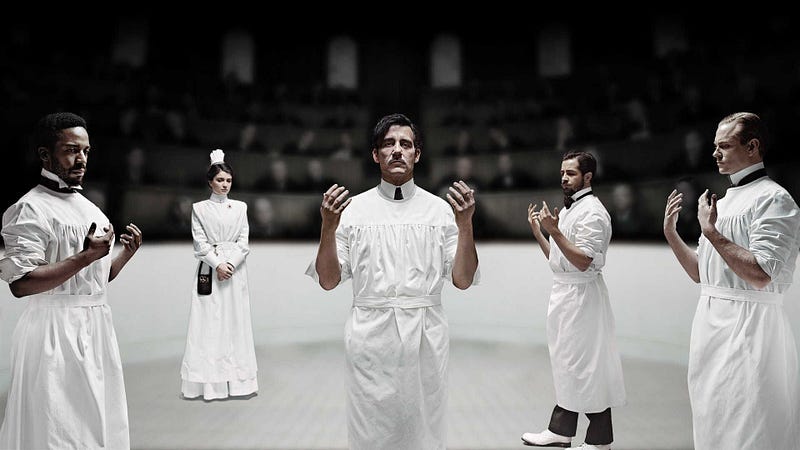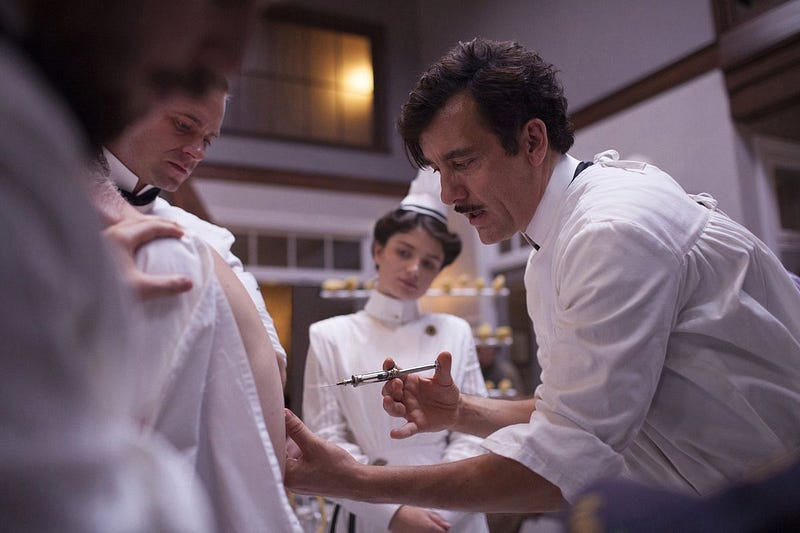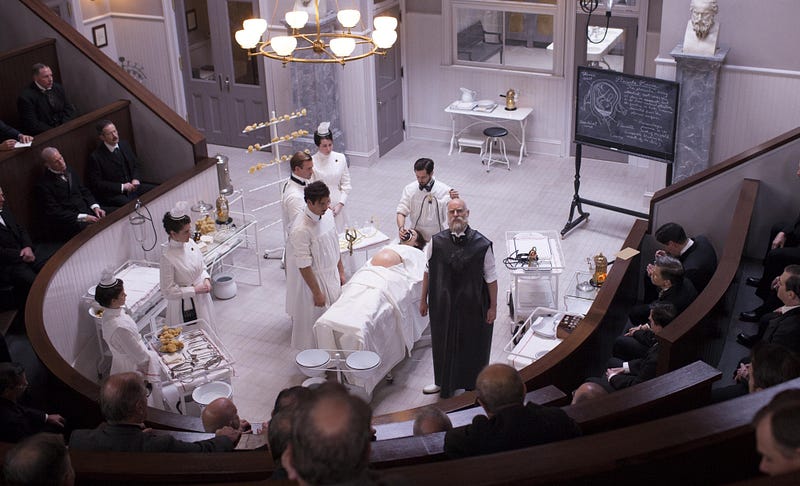# Exploring Parallels Between "The Knick" and the COVID-19 Crisis
Written on
Chapter 1: The Timely Relevance of "The Knick"
In the wake of the COVID-19 pandemic, the medical drama "The Knick," directed by Steven Soderbergh, resonates deeply with contemporary audiences. The show, created shortly after the release of "Contagion" in 2011, features a subplot that examines the discovery of asymptomatic carriers and the practices of contact tracing and quarantine.

Last spring, amidst the unfolding global health crisis, Soderbergh took on a pivotal role as the chair of a Directors Guild committee, collaborating with epidemiologists to develop a "comprehensive guide" aimed at ensuring a safe return to filming. His previous work on "Contagion," which gained acclaim for its scientific accuracy, likely influenced this decision, as audiences turned to it for insight during the pandemic.
Set in the early 1900s, "The Knick" unfolds in a fictionalized version of the historic Knickerbocker hospital in New York, a time when numerous medical advancements were just beginning to emerge. Combining elements of medical drama and horror, it distinguishes itself by portraying a grim reality where patient mortality often outweighs survival, echoing the unsettling atmosphere of "Contagion," especially poignant in the context of COVID-19.
Section 1.1: Unveiling the Typhoid Fever Outbreak
A prominent parallel lies in the investigation of a typhoid fever outbreak by Cornelia Robertson, the hospital's Head of Social Welfare. As numerous patients exhibit similar symptoms, Cornelia and Health Inspector Speight discover a shared link among the affected individuals: their neighborhood. This leads them to conduct what we now recognize as contact tracing. Their search ultimately reveals Mary Mallon, a cook who became infamous as "Typhoid Mary," as a common denominator among the cases.
The narrative takes a contemporary twist when Mary, after being isolated, challenges her quarantine in court, asserting that her rights are being violated due to her lack of symptoms. “No cough, no cold, no fever. Sick people get sick. Do I look sick to you?” she questions the judge. This sentiment resonates with the lessons learned during the COVID-19 pandemic, where we came to understand that asymptomatic individuals can still be contagious. Dr. Chickering reminds the court, “Just because Ms. Mallon isn’t showing signs of the disease, it doesn’t mean she can’t spread it.” How often did we hear similar statements throughout the past year?
Subsection 1.1.1: The Historical Context of Asymptomatic Carriers

Set in 1900, the series presents Dr. Chickering's explanation of Mallon as the first recorded case of an asymptomatic carrier. Ultimately, Typhoid Mary is released, leading to a disheartening moment for the doctors as they exit the courtroom, one of them stating, “It took 5,000 years for people to understand that germs can make a body sick; it’s gonna take some time for them to figure out that they can exist without showing symptoms.” Their defeat is interrupted by Mallon, who defiantly retorts, “Go fuck yourselves.” Inspector Speight's response, “Go wash yourself,” serves as a stark reminder of the hygiene practices emphasized during the pandemic.
Section 1.2: The Struggles of a Historical Hospital
The challenges faced by the Knickerbocker hospital extend beyond individual cases. The institution, situated in a poorer area of New York, struggles financially due to its patient demographic. Board members, motivated by profit, push for the establishment of a new hospital in a wealthier neighborhood to attract affluent patients. This pursuit highlights not only class disparities but also racial segregation, as separate facilities exist for Black and Jewish patients, often with unequal resources. Such inequalities remain relevant today, as studies indicate that marginalized communities continue to suffer disproportionately from COVID-19.
Chapter 2: Reflecting on the Present Through Historical Lenses
Period dramas frequently utilize historical narratives to comment on contemporary issues. "The Knick" is no exception, revealing that while times may appear different, fundamental challenges persist. Although the series originally aired from 2014 to 2015, the parallels drawn between its themes and the ongoing pandemic are striking. As the protagonist's somber reflection suggests, “This is all we are,” leaving viewers to ponder the enduring truths of our society.
